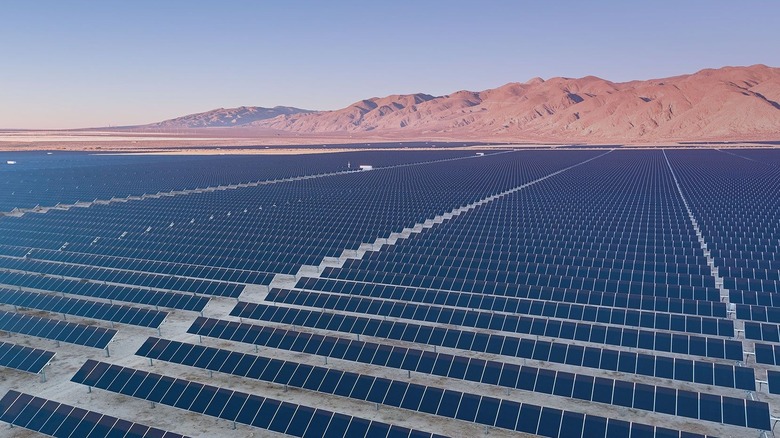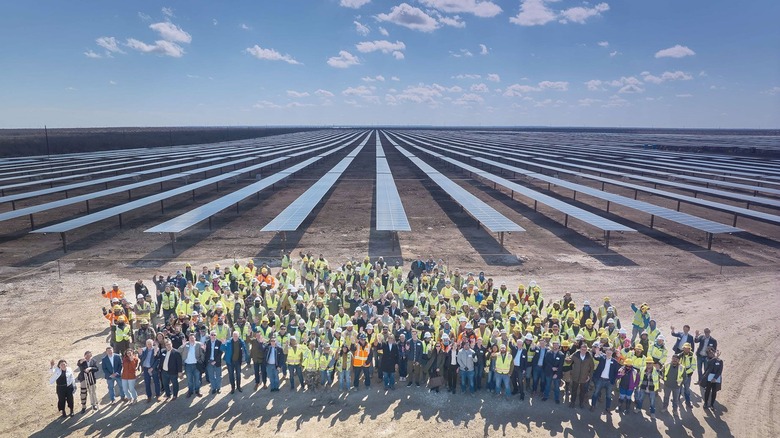This 2,000-Acre Solar Plant Claims It Will Bring In 'Over $100 Million'
Arizona officials just gave the green light to a beast of a solar project. It's a 2,000-acre plant set to be built in Maricopa County, just south of Phoenix. The company behind this massive venture is Avantus Clean Energy, a California-based firm that, according to its website, already manages one of the country's largest utility-scale solar portfolios. They're calling it the Pinyon Solar Project, and it's not just a field of panels. The plans also include a significant battery storage facility, which will take up about 24 acres all on its own. This battery inclusion is a huge deal. It means the plant can store extra energy collected on sunny days and pump it out at night or when it's cloudy.
When it's all built, the facility is expected to generate enough juice to power 70,000 Arizona homes. The development will be split between 1,788 acres of Bureau of Land Management property and 241 acres of private land. This is huge, considering some of the largest solar farms in the U.S. cover over 4,000 acres. Avantus told Phoenix Business Journal in a statement that it specifically picked this spot to minimize impacts on the local community and environment. A big plus is its closeness to the Pinal West Substation, which lets it hook into the grid without a ton of new infrastructure. Plus, the photovoltaic tech being used doesn't gulp down water, so county documents say it won't threaten the groundwater supply. They plan to break ground in the fall of 2026 and hope to have the whole thing online by early 2028 after 18 months of construction.
A $100 million in tax revenues
That 18-month construction window is going to be a mini-boom for local labor. Avantus expects to need around 500 workers during the project's most intense building phase. Once the dust settles and the plant is running, the workforce will slim down to five permanent, full-time employees for regular operations. The really juicy number, though, is that $100 million figure. Colin Mann, Avantus's permitting director, stated the project is expected to pull in over $100 million in tax revenues over its lifespan. That cash is earmarked to help fund local services like schools, public safety, and infrastructure improvements. Beyond the direct cash injection, the project promises a more stable power situation. Having this much local generation helps Arizona become less reliant on energy imports from other states.
Meanwhile, the payoff for everyday Arizonans is a more dependable stream of power to keep their air conditioning running during those brutal summers. This could eventually mean cheaper power bills over time for them, too. That's a solid bet, considering solar is now a mature technology and its price has a history of plummeting by an average of 20% every ten years.
Arizona has endless potential for such projects
This project isn't happening in a vacuum. Arizona is basically the perfect place for this kind of thing, being the sunniest state in the U.S. – though it's California that snags the top spot for the best state for solar energy due to several other reasons. Arizona is also dealing with soaring energy demands, driven by a perfect storm of a growing population, new industry, and a wild number of energy- and water-hungry data centers by companies like Meta. In fact, Phoenix has the second-highest number of data centers in the U.S. Add in record-breaking heatwaves, like last year's brutal 113 consecutive days at or above 100 degrees, and you see why the grid is screaming for help.
Governor Katie Hobbs seems to get it. She recently signed an executive order to cut red tape and streamline processes for energy projects on state land. This move created the Arizona Energy Promise Taskforce to manage this growth. The political landscape is... weird, though. The governor's push comes as the Trump administration continues to defund renewable projects. Even inside Arizona, there's friction. Just last month, the Arizona Corporation Commission bizarrely voted to scrap the state's 15% renewable energy mandate. That decision came just as utility APS ditched its 2050 carbon-free goal and announced a new $7.3 billion natural gas project.


